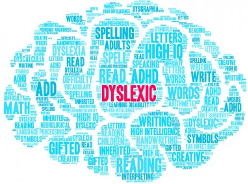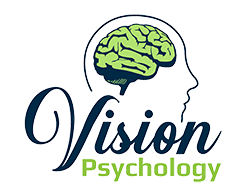Interview with Dr Daniel Ansari
Dr Daniel Ansari (Germany), is a Dyscalculia expert and currently Professor in Developmental Cognitive Neuroscience in the department of Psychology at the University of Western Ontario in Canada. He is also affiliated with the NIE/NTU in Singapore and visits regularly. He shared about his current research studies and emphasized on the importance of early screening for math difficulties:
1)You have been a visiting professor to the NIE/NTU in Singapore since 2017, why were you keen to take up this position?
 There is a variety of reasons; it allowed me to collaborate with a number of researchers in Singapore who I have been in contact with over the years such as Kerry Lee and Rebecca Bull who both have unfortunately since left the NIE. Singapore obviously is a country that is very famous for its math education system, so I was keen to understand more about that. The overall ability to help the NIE to integrate more cognitive neuroscience into their research portfolio was also a big factor. The NTU has a new imaging centre CoNiC and to be able to do some work there and to train students and postdoctoral fellows there was a great opportunity.
There is a variety of reasons; it allowed me to collaborate with a number of researchers in Singapore who I have been in contact with over the years such as Kerry Lee and Rebecca Bull who both have unfortunately since left the NIE. Singapore obviously is a country that is very famous for its math education system, so I was keen to understand more about that. The overall ability to help the NIE to integrate more cognitive neuroscience into their research portfolio was also a big factor. The NTU has a new imaging centre CoNiC and to be able to do some work there and to train students and postdoctoral fellows there was a great opportunity.
From a personal point of view, it was an opportunity for my family to spend some time in a different country and to get to know a different country a little bit better. All of these things together, motivated me to help write the grant that eventually started the research project.
2)In your opinion, what has the field of neuroscience contributed to the enigma of dyscalculia during the last few years?
Unfortunately, not that much yet. I think the research literature on the neuro-correlates of dyscalculia is just not very solid yet. There are not enough studies, so one of the things we have done in Singapore and we are just analyzing the data, we have done a very large comparative imaging study of children with math difficulties. I am hoping that will contribute something. We know from brain-imaging now that children with and without dyscalculia look different in terms of brain activation and structure etc, but we need a lot more reliable data to make bigger inferences. In the imaging study there were about 30 participants and in the wider behavioural study we have got over a hundred students. So, we are going to be combining the behavioural and the brain imaging data to make better inferences. If you look into the literature, the samples sizes are like 8 or 12. So having 30, and we know they have been having math difficulties since they were 6 years of age, we have very good cognitive characterisations of these groups. That will allow us to interpret the imaging data in more meaningful ways as well. This is a field that is in its infancy compared to dyslexia for example.
3)Why is it important for students who have been diagnosed with Dyslexia or ADHD to be assessed for math as well?
 I think it is critical actually. Because we know that learning difficulties co-occur. The co-morbidities rates are very high. It is very rare to encounter children who only have one learning difficulty; typically, they have more than one. It is important to look at the math problems for children who have dyslexia (or ADHD) for sure. Absolutely!
I think it is critical actually. Because we know that learning difficulties co-occur. The co-morbidities rates are very high. It is very rare to encounter children who only have one learning difficulty; typically, they have more than one. It is important to look at the math problems for children who have dyslexia (or ADHD) for sure. Absolutely!
4)You recommend early screening for math difficulties, what age would this be?
What I recommend is that we look at early math just like we look at early reading. That we use better tools to identify kids who might be falling behind. I don’t think it is possible to diagnose dyscalculia when children are 3,4 or 5, but it is possible to catch children who might be lacking fundamental concepts. One of the things I feel very strongly about is in early Kindergarten we test whether children have an understanding of cardinality. Because we know there are huge individual differences, whereby some children have an understanding of the meaning of counting by the age of 2,5 and others by the age of 5. We also know that if these children aren’t caught, these gaps will persist and will grow larger. In my local school district, they screen all children using a phonological awareness screener, so why don’t we have something similar for numbers, we should. We can screen children as young as 4 or 5 for basic math concepts. That does not mean we can diagnose them; in fact, we should not diagnose them at that stage, but at least we can catch those that are falling behind.
5)How may math anxiety affect the performance in mathematics?
Math anxiety is one of those topics that has only recently caught the attention of researchers, I think teachers and educators have been aware of it for decades. The way in which we think that math anxiety influences your math abilities, or your ability to complete a math problem, is that when you are experiencing math anxiety you are ruminating about that. You are reflecting on your anxiety. It is taking part of your processing resources, so you can’t devote those resources to other tasks. Research proposed by Mark Ashcraft, quite a few years ago and has since gotten a lot of attraction, his notion is that when you have math anxiety and at the same time you are doing math, you are essentially doing two things at the same time. You try to deal with your anxiety, but you are also trying to do the math task. So, in that way, math anxiety really influences the processing of numerical and mathematical information, because it takes away some of the processing resources that you would otherwise dedicate to doing the task. What is important to know about math anxiety and math ability, is that they are only weakly related. This means you have students who have high math anxiety but are actually very competent at math, and students who have low math anxiety but are also very competent at math. So, you have both extremes, so that’s important to know there are students who experience math anxiety but it has nothing to do with their math ability.
6)Lastly, what are your favourite places to eat or visit in Singapore?
There are so many! One of my favourite places is Alexandra food court, there are several amazing places there; an amazing Chinese dumpling place and they have amazing soups there too and really good carrot cake. Other places hmmm, I like Pulau Ubin for the chili crab, and I really like the Satay by the Bay, near Gardens by the Bay, the food is really good! The food courts near the NTU where I sometimes went with my postdoc are amazing. Little India is fantastic too, I especially love North Indian food!
Dr Daniel Ansari has several educational videos on YouTube and stressed that “Dyscalculia is as common as dyslexia” in Understanding Dyscalculia (2017).

